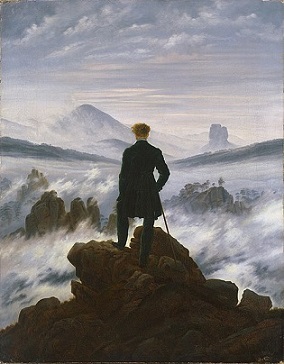A month before leaving public life, I published a critique on the media. At a retirement gathering soon after, a reporter asked why I’d waited until leaving office to share my views. Previously, I’d written other papers –one on property taxes and the other on Grand Juries. The last appeared in December 1988. The Media: Who’s Watching the Watchers?
I wrote the piece because I’d been looking into the viability of Press Councils, citizen groups set up to review people’s complaints about the media. Few of these organizations existed, largely because news outlets lobbied against them. Several academic studies did support the idea, however. The reasons varied:
- The symbiotic relationship between the media and the power structure was too great
- Having wrapped itself in First Amendment claims, journalism had rendered the courts powerless against it.
- Its business interest competed with its public duty, leading to a temptation to manipulate the audience. Said one academic, “Democracy cannot survive if we are to be the targets of hidden persuaders.“ (News Media Locked in Established, Rigid Structure,” by Robert Shara, The Oregonian, Forum Section, October 31, 1988, B7.) *
Having felt the sting of editorial criticism while in office, I gave the inquisitive reporter an honest answer. “No politician is insane enough to take on the press as a public figure.” The reply drew laughs, even from the reporter.
Times have changed, of course. Fear of the press is diminished and the term “fake news” is part of the vernacular. The media has earned some of the criticism it receives. More than one reporter has made up a story to advance a career. Nonetheless, I concur with Thomas Jefferson that a flawed press is better than no press at all.
To “err” is human and journalists make mistakes like the rest of us, though those I’ve known would never admit it. Even so, their mandate to inform the public is vital to a democracy.
NBC no doubt had the best intentions when it hired the former chair of the Republican National Committee (RNC), Ronna McDaniel as a contributor to its news roster. Absent a Fairness doctrine, management’s decision to inject a conservative viewpoint into what many see as a liberal press was a bold one.
The Fairness doctrine, a creation of the Federal Communication Commission (FCC,) was established in 1949. It required broadcasters and the print media to air all sides of issues that were in the public interest. The policy worked for a time, but the advent of electronic media changed the landscape. The near-monopoly news sources of the past became less worrisome when social platforms with commentators and bloggers mushroomed. Eventually, the FCC allowed the Fairness Doctrine to fade away.
As no good intention goes unpunished, NBC’s decision to hire McDaniel put the managers at odds with their brightest luminaries, including affiliate anchors. MSNBC’s Rachael Maddow and Lawrence O’Donnell excoriated the recruit. They accused her of lying and attempting to undermine the media’s legitimacy.
Geraldo Rivera, a correspondent with NewsNation disagreed. He called the objectors a cabal of aging hosts. Rivera, who was born in 1943, is older than those he attacked, which gave his remark whimsy but no substance. Even so, his protest raised a question. What gave the dissenting journalists the right to claim the moral high ground?
Admittedly, McDaneil’s case is moot. Cowed by their staff, NBC fired her. But was the decision fair?
The debate seems to lie more with opinion than fact, something we humans exercise in abundance. Other primates have norms that serve as social laws. But human opinions are personal truths, usually impervious to information. How else could chauvinism exist over the centuries?
In Politics, opinion holds sway over truth much of the time. It’s axiomatic that the appearance of impropriety is as bad as having done the deed. In McDaniel’s case, whether she lied or unwittingly served as Donald Trump’s pawn probably can’t be established in a court of law–which is why, unlike her former boss, she was never charged with a crime. Still, her NBC firing was a punishment and based on perception.
In my opinion, McDaniel should have been allowed to strut her hour or two upon the public airwaves. Voters might have learned something. Or, maybe not which would also be telling. But a “cabal of journalists” shouldn’t decide what the public hears.
That’s my two cents worth, anyway, though I don’t expect anyone to live off the proceeds. For a gratuity, I’ll add one other personal truth. Never in my 87 years has my decision to take the high ground led anywhere but to a precipice.
*Anyone interested in the sources for these statements, let me know.

